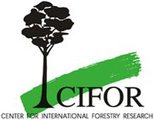The Center for International Forestry Research (CIFOR) has released a brief providing recommendations on payments for ecosystem services (PES) in Vietnam.
The brief examines institutional arrangements, benefit sharing, and monitoring and evaluation based on a study of PES mechanisms undertaken since 2008.
 16 August 2013: The Center for International Forestry Research (CIFOR) has released a brief that provides recommendations on payments for ecosystem services (PES) in Viet Nam. The brief examines institutional arrangements, benefit sharing, and monitoring and evaluation based on a study of PES mechanisms undertaken since 2008.
16 August 2013: The Center for International Forestry Research (CIFOR) has released a brief that provides recommendations on payments for ecosystem services (PES) in Viet Nam. The brief examines institutional arrangements, benefit sharing, and monitoring and evaluation based on a study of PES mechanisms undertaken since 2008.
With regard to the institutional setting for PES, the brief concludes that a general legal framework is in place for payments for watershed protection, protection of natural landscapes and biodiversity, forest carbon sequestration and emission avoidance, and support for forests as sites for aquaculture. However, the brief reveals that, thus far, disbursement rates for PES remain under 50 per cent, transaction costs are high, local communities lack the legal status to enter into PES agreements, and buyers and suppliers are not well-defined and even when they are, the private sector is disadvantaged compared to public entities.
With regard to benefit sharing, the brief suggests that payments be revaluated in order to ensure that PES adequately offset opportunity costs. It also recommends that payments be tied to a percentage of the revenue earned from the supply of the ecosystem service or the percentage of the watershed that is forested. The brief also suggests that high value areas be prioritized for PES and that other programs for conservation and restoration be paired with PES.
Finally, the brief concludes that no clear monitoring and evaluation programme is currently in place for PES, and that environmental and socio-economic baselines are inadequate. The publication attributes these conditions to insufficient staff capacity, insufficient penalties for illegal actions, a lack of authority to ensure compliance, and the absence of grievance mechanisms. CIFOR is a member of the Consultative Group on International Agricultural Research (CGIAR). [Publication: Brief No.22 – August 2013]